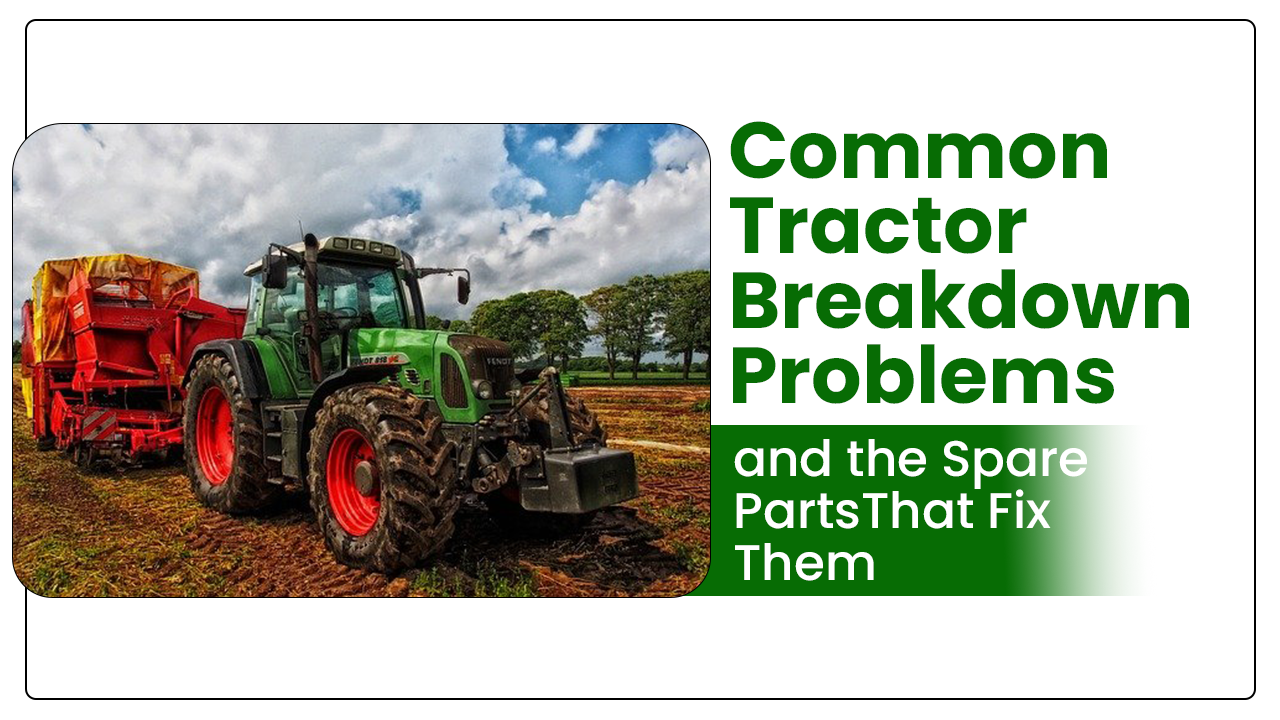Learn about common tractor breakdown problems, their causes, and the right spare parts to fix them. Improve performance and reduce downtime with Gropart.
Smart Farming Technologies for Small-Scale Indian Farmers
Introduction
In recent years, the agricultural landscape in India has been undergoing a remarkable transformation, thanks to the advent of smart farming technologies. Small-scale Indian farmers, who have long been the backbone of the country's agrarian economy, are now embracing innovative solutions to enhance their productivity, reduce resource wastage, and improve their overall quality of life. This article delves into the world of smart farming technologies that are revolutionizing agriculture for small-scale Indian farmers.
The Rise of Precision Farming
Precision Farming: A Game Changer
Precision farming, often referred to as precision agriculture or smart farming, is a farming management concept that employs advanced technologies to optimize the efficiency and sustainability of agricultural production. For small-scale Indian farmers, this approach is proving to be a game changer.
Key Technologies in Precision Farming
1. IoT-Enabled Sensors: The deployment of Internet of Things (IoT)-enabled sensors in the fields allows farmers to monitor soil conditions, weather patterns, and crop health in real-time. These sensors provide valuable data that can inform decisions about irrigation, fertilization, and pest control.
2. Drones for Aerial Surveillance: Drones equipped with high-resolution cameras are being used for aerial surveillance of crops. This technology helps farmers detect early signs of disease, assess crop growth, and identify areas that require immediate attention.
3. GPS-Based Tractor Guidance: GPS technology has made its way into the Indian farming landscape, assisting farmers in achieving precise row spacing and reducing overlaps during planting and harvesting. This not only conserves resources but also enhances yield.
Efficient Water Management
The Water Crisis in Indian Agriculture
Water scarcity is a pressing issue in Indian agriculture, particularly for small-scale farmers who rely heavily on monsoon rains. Smart farming technologies are offering innovative solutions to address this challenge.
Drip Irrigation Systems
Drip irrigation systems have gained popularity among small-scale Indian farmers. These systems deliver water directly to the roots of plants, minimizing water wastage. Moreover, they can be controlled remotely, ensuring that crops receive the right amount of water at the right time.
Weather Forecasting for Irrigation
Access to accurate weather forecasting is crucial for efficient irrigation planning. Smart farming technologies provide farmers with real-time weather data and predictions, enabling them to make informed decisions about when and how much to irrigate.
Pest and Disease Management
Early Detection with AI
Pests and diseases pose a constant threat to crop yields. Small-scale Indian farmers are now harnessing the power of artificial intelligence (AI) to identify and combat these threats.
AI-Powered Pest Identification Apps
Mobile apps powered by AI algorithms can identify pests and diseases based on images uploaded by farmers. This rapid identification allows farmers to take immediate action, such as targeted pesticide application or crop removal, thus minimizing losses.
Crop Health Monitoring
Satellite imagery and remote sensing technologies are employed to monitor the health of crops. Changes in vegetation patterns can be indicative of pest infestations or diseases, prompting farmers to investigate and take preventive measures.
Financial Management and Market Access
Empowering Farmers with Information
Access to market prices and financial information is vital for small-scale farmers to make informed decisions about crop selection and selling strategies.
Mobile Apps for Market Information
Several mobile apps and websites now provide small-scale Indian farmers with up-to-date market prices, helping them negotiate better deals and plan their harvests accordingly.
Conclusion
Smart farming technologies are ushering in a new era for small-scale Indian farmers. From precision farming techniques that optimize resource use to efficient water management systems that combat scarcity, and from AI-powered pest control to enhanced market access, these technologies are transforming traditional agriculture into a modern and sustainable industry.
Frequently Asked Questions
1. Are smart farming technologies affordable for small-scale Indian farmers?
· While the initial investment can be a challenge, many government initiatives and subsidies are aimed at making these technologies more accessible to small-scale farmers.
2. How do small-scale farmers access the necessary training to use these technologies effectively?
· Agricultural extension services and NGOs play a crucial role in providing training and support to farmers in adopting smart farming practices.
3. What are the environmental benefits of smart farming technologies?
· Smart farming helps reduce resource wastage, leading to more sustainable and eco-friendly agricultural practices that are better for the environment.
In conclusion, smart farming technologies are not just a luxury but a necessity for small-scale Indian farmers looking to secure their livelihoods and contribute to the nation's food security. With continued innovation and support, these technologies have the potential to reshape the future of Indian agriculture
 हिन्दी
हिन्दी




